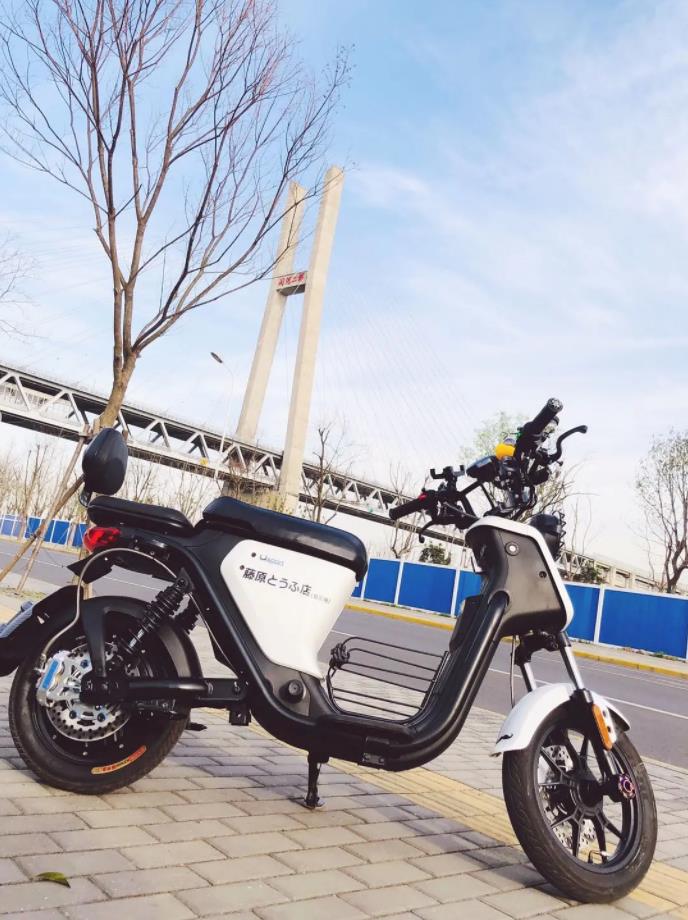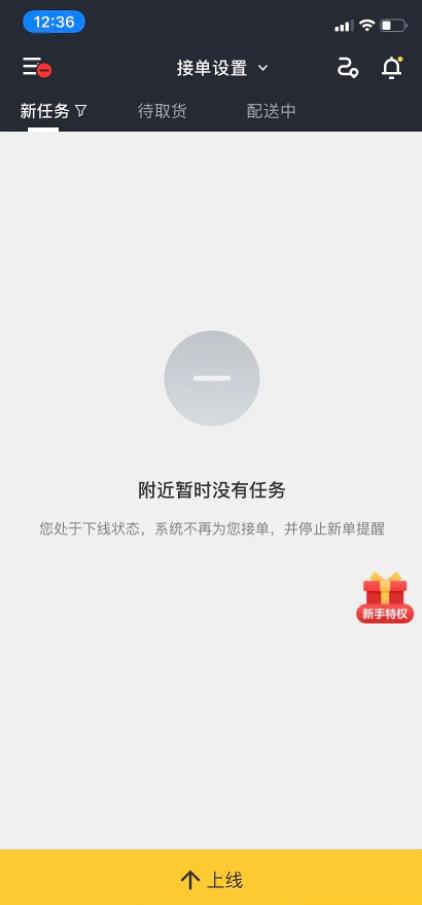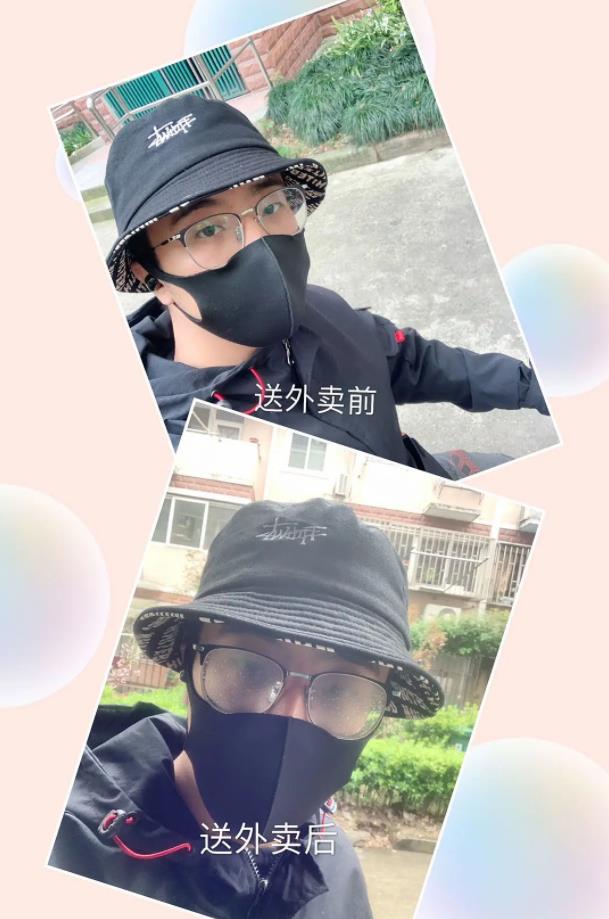After two months at home, a 32-year-old mechanical designer decides to go out to deliver food
After staying at home for nearly two months because of the pandemic, 32-year-old Shanghai native Wang Happy decided to deliver food, but it wasn’t a story that was forced to change the course of his life. At the end of a few days of food delivery experience, he regained the precious aspects of his daily life.
Mr. Wang’s electric car is perhaps the least like one used for food delivery: brand new, sophisticated and so small that it doesn’t even look like it could fit in a trunk, with the words "Fujiwara Tofu Shop" on Jay Chou’s car in the movie Initial D.
In March, Shanghai gradually warmed up, but the sky did not completely clear up. During the epidemic at home, Wang Happy changed his electric car and planned to go out for a walk when the weather was good.

Mr. Wang, who works in mechanical design, came up with the idea of delivering food partly because he had more free time during the epidemic, and partly because he wanted to "experience different lives of different people and understand the world better."
Wang Happy downloaded a takeaway rider order-taking software, and spent an hour or two learning about real-name registration and traffic laws. When receiving an order, refresh the page, and the order keeps popping up. Generally, orders delivered by the system are picked up and delivered within 5 kilometers. When receiving an order, sometimes the system will push orders that are closer to the pickup distance along the way. At this time, the rider will have 2 to 3 orders, all of which need to be delivered within half an hour.

"The convenient and fast service that buyers can enjoy for a few dollars is based on the hard work of the riders and the low income." After three or four days of delivery, Wang Happy has a more empathetic experience of the situation of this group.
The income of one order of takeaway delivery is 6 or 7 yuan. If it is overtime, it will be fined 10 yuan, and there will be additional fines for multiple overtime. If you choose the safe "one order after another" in order to avoid overtime, it is difficult to earn more than 20 yuan an hour.
Mr. Wang did some rough calculations. If he was familiar with the environment and could not make any mistakes, the maximum income for an hour during peak dining hours was about 30 yuan. However, this 30 yuan is not easy for Mr. Wang to earn as a novice. Mobile phone navigation has led to some blocked or non-existent roads several times, and the situation that the recipient’s mobile phone cannot be reached and the takeaway food is difficult to find is even more common. According to his calculations, a part-time rider who works eight hours a day, five days a week, will not earn more than 4,000 yuan a month. This is the price of renting a one-bedroom in a non-central area of Shanghai.
In the days just after the takeaway delivery, Wang Happy would subconsciously convert the price unit into "single" when buying things. A meal of KFC costs 30 or 40, which is equivalent to the money earned by giving away six or seven takeout orders, and six or seven orders take nearly two hours. Thinking of this, even KFC is reluctant to eat it. This is something Wang Happy couldn’t experience firsthand before.
Wang Happy also found some fun on the "assembly line".
He observed some interesting phenomena: women ordered mostly drinks, desserts, and snacks, while men ordered mainly staple foods, and the price was cheaper; in terms of distance, the delivery distance of women’s orders was closer than that of men; in terms of age, takeout orders were mainly young people, "I haven’t met fifty or sixty".
He also likes to chat with other delivery riders. Without the constraints of leadership, there is no intrigue among colleagues. After dinner, he can play with his mobile phone and listen to music on the way to food delivery. He has more freedom than office workers – this is the reason why most riders choose to do this from the chat. "Compared with their own conditions, delivery is already a better choice within the ability of many of them."

The riders shuttling through the streets made Wang happy to see the inclusive side of the city. Whether it is work-study college students, women raising children alone, migrant workers who dream of taking root in the city, or middle-aged people who have lost their jobs during the epidemic, they can all have their own place in the army of electric vehicles at red lights such as crossroads, where all hopes for life are accommodated.
For some people, this might just be a temporary shelter. A woman raising a child alone might leave silently one morning, and a migrant worker who dreamed of taking root in the city might return to his hometown to build a house and marry a wife after saving enough money… After the identity exchange ended, Wang Happy also returned to a safe comfort zone.
When Wang Happy and thousands of city speeders cycled through the intersection, embracing the oncoming spring breeze, the willows by the river were gradually stretching their branches that had been sealed all winter. (Text/Chen Siyuan)
(At the request of the interviewee, Wang Xingxin used a pseudonym.)